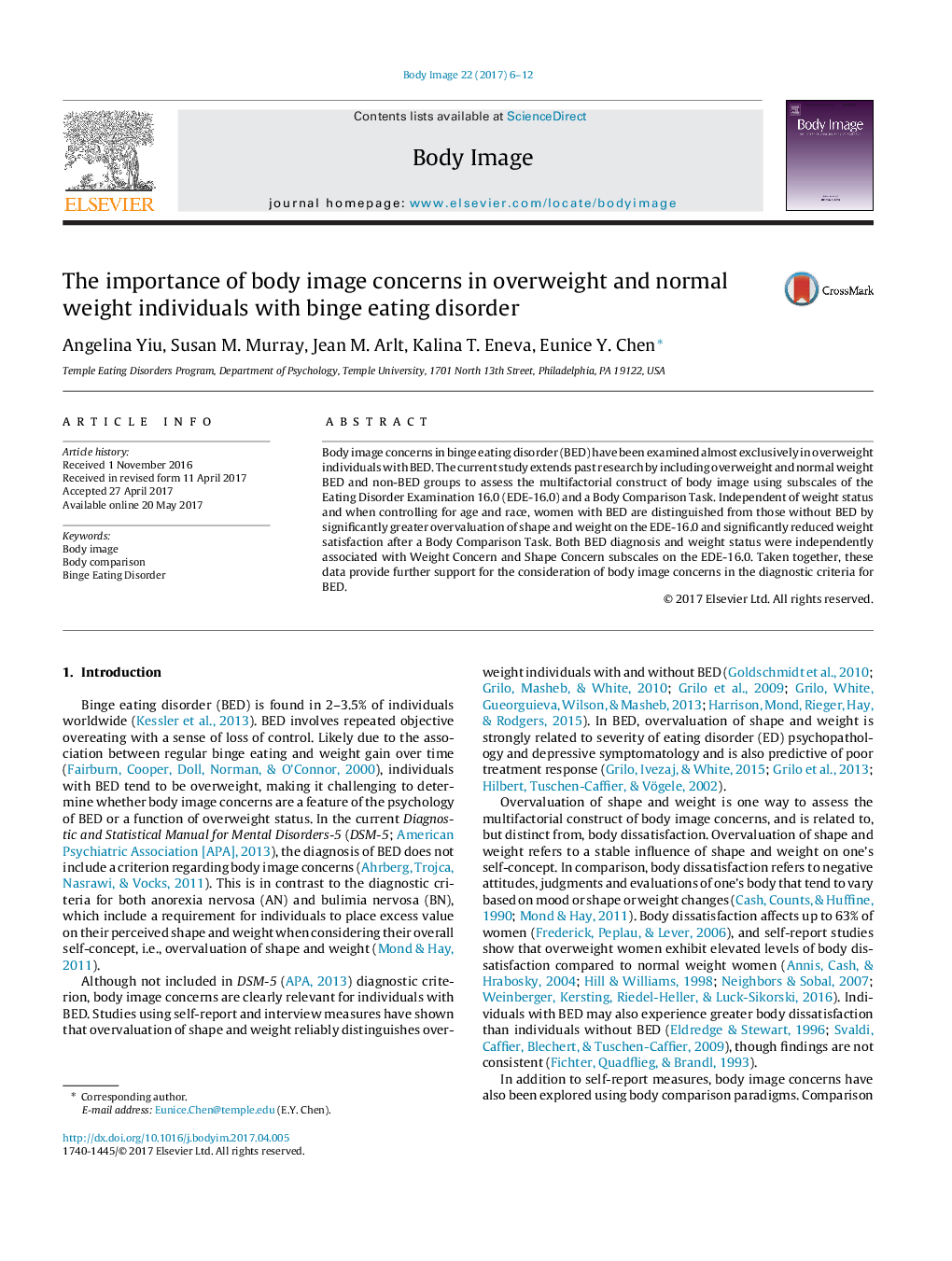| Article ID | Journal | Published Year | Pages | File Type |
|---|---|---|---|---|
| 5038369 | Body Image | 2017 | 7 Pages |
â¢Weight satisfaction following a Body Comparison Task distinguishes BED from overweight status.â¢Overvaluation of shape and weight distinguishes BED from overweight status.â¢BED diagnosis and weight status were independently associated with weight and shape concerns.
Body image concerns in binge eating disorder (BED) have been examined almost exclusively in overweight individuals with BED. The current study extends past research by including overweight and normal weight BED and non-BED groups to assess the multifactorial construct of body image using subscales of the Eating Disorder Examination 16.0 (EDE-16.0) and a Body Comparison Task. Independent of weight status and when controlling for age and race, women with BED are distinguished from those without BED by significantly greater overvaluation of shape and weight on the EDE-16.0 and significantly reduced weight satisfaction after a Body Comparison Task. Both BED diagnosis and weight status were independently associated with Weight Concern and Shape Concern subscales on the EDE-16.0. Taken together, these data provide further support for the consideration of body image concerns in the diagnostic criteria for BED.
